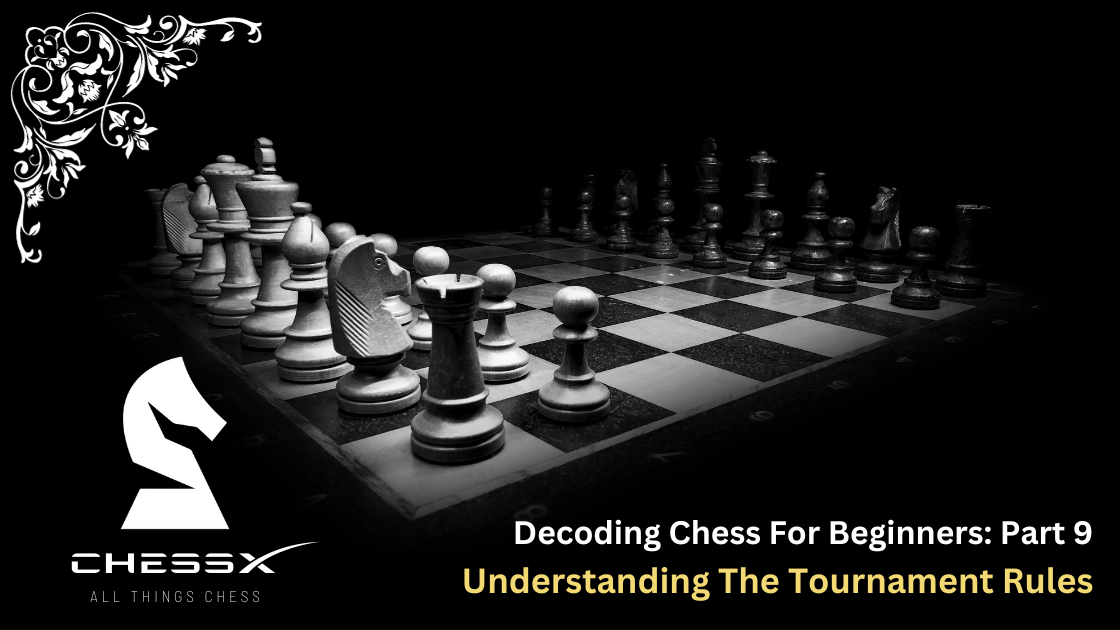Decoding Chess for Beginners: Understanding The Tournament Rules

In the ninth installment of the Chess for Beginners series, we will introduce you to Basic Tournament Rules. We encourage you to read the complete blog to gain the most from this discussion.
Understanding the intricacies of various deployment strategies in chess is crucial, but without a grasp of tournament rules, your chances of success are significantly diminished.
In this blog, We will elucidate the essential tournament rules to ensure your readiness for a genuine chess encounter.
When in Doubt, Ask
Don't hesitate to seek clarification from the tournament director when in doubt. Uncertainty about tournament rules can lead to potential game losses. Prior to the commencement of the game, ensure all your doubts are resolved.
During the game, if disputes arise with your opponent, it's prudent to pause the clock and summon the tournament director for prompt clarification, avoiding time wastage in futile discussions.
Touch Move Rule
Abide by the touch move rule, meaning you must move the piece you touch. This rule is especially critical for beginners. There is no undoing a careless move in a tournament, so exercise caution when handling pieces. If you touch a piece inadvertently while reaching for another, your opponent cannot enforce the touch move rule. You're allowed to adjust a piece's position by saying, “I adjust” before physically touching it, making it clear that your intention is not to make a move.
Correct Approach: Before physically moving the knight, you say, "I adjust," making it clear that your touch is not intended as a move. This allows you to correct the position without invoking the touch move rule.
Recording Moves
In most tournaments, players are required to record their moves to create a written record of the game. Accurate recording is vital, as this record may be consulted in case of disputes. Poorly documented moves can be detrimental during dispute resolution.
Correct Approach: Immediately after your opponent's move, take a moment to record it accurately. This ensures a comprehensive record of the game, useful in case of disputes or endgame analysis.
Non-Interference
Players not involved in a match must refrain from interfering. As an observer, you have no role in reporting rule violations or offering suggestions during ongoing games. Interfering can lead to disqualification, so respect the players' autonomy and focus on your role as a spectator.
Correct Approach: As a non-participant, refrain from intervening. Allow the players to manage their game. Reporting rule violations is not within your role as an observer, ensuring a fair playing field for all participants.
To access the entire blog, subscribe to our premium plans today and elevate your chess game to the next level. Get ChessX for all things chess.